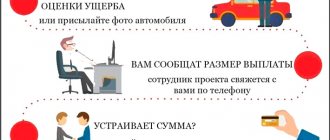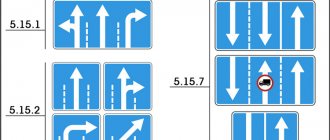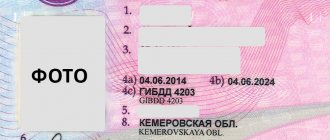Is it possible to get money instead of repairs with CASCO insurance?
The terms of the CASCO policy are regulated by the Civil Code of the Russian Federation and the Insurance Rules - they are approved when the insurance company is established. If the client, at the stage of drawing up the contract, chooses a cash payment scheme instead of repair work at a service station (usually a partner center), then the insurer does not have the right not to satisfy his request.
There are only three forms of compensation:
- payments with or without depreciation;
- transfer of aggregate or non-aggregate amount;
- repair at SK's partner service station or any other chosen by the client.
Neither party has the right to change the terms after the fact unless there is a legal basis for doing so. However, in judicial practice there have been precedents in which clients of insurance companies referred to the norms of the Civil Code and sought monetary compensation that was not regulated by the contract.
Legal restoration period
At the moment, there is no regulation that clearly reflects the time period within which the company undertakes to repair the car. The time required to fix the breakdown is individual for each SC. Drivers need to take into account that the terms of car repair under CASCO are stipulated by law when drawing up an agreement with the insurance company. This is discussed in Article No. 943 of the Civil Code of the Russian Federation. It also indicates the factors influencing the time not spent and the reasons why warranty service may be delayed.
On average, the car repair period under CASCO ranges from 15 to 45 days. But the length of stay at the service station may increase.
Why do insurance companies insist on compensation in the form of car repairs?
It is not profitable for insurance companies to violate the terms of the contract with the client. But there are situations when the document does not contain a clause on mandatory repairs at a service station, but when the policyholder contacts the company’s employees, they begin:
- convince him that repairs are necessary;
- prove the legality of the requirements of the insurance rules.
The reason for this behavior:
- An examination of damage is not always carried out before repairs. If the insurance company was able to convince the owner that there is no need for an assessment, then it is possible that only visible defects will be eliminated at the service station. At the same time, some damaged components may be missed - this reduces the cost of work and saves the insurer money.
- Service stations often work under a partnership program with insurance companies. Mechanics install parts purchased cheaper - the reporting documents reflect prices that do not correspond to the actual ones.
- Other cost cutting schemes. To avoid fraud, you need to conduct an examination before and after repairs.
Related article: Ways to return CASCO when selling a car
At the same time, repairing external defects and other components can be beneficial for the policyholder. You need to evaluate the proposed conditions before trying to achieve cash payments.
Important! If the conditions described in the insurance contract do not comply with the law and infringe on the consumer rights of the policyholder, then they are declared invalid in court.
If the case goes to court, you will need to prepare evidence of negotiations with the Investigative Committee. The consumer's requirement cannot be satisfied on the basis of unsubstantiated statements. Correspondence, written notices, calls, etc. are suitable as evidence.
Responsibility for the quality of repairs under insurance
The insurance company is responsible only for meeting the deadlines for the restoration of the vehicle, and the service station is fully responsible for the quality of repair work. Therefore, you should definitely conclude an agreement with the car service. If defects are discovered, you need to demand their elimination from the service station employees, and if they refuse, file a complaint with the insurance company. If these actions do not lead to a positive result, there is only one option left - to defend your rights in court.
What to do in case of poor-quality repairs
To appeal to the judicial authorities, compelling arguments are required. Poor quality repairs have the following signs:
- parts and components of inadequate quality that do not allow the car to move normally, brake, stay on its trajectory, ensure a smooth ride, etc.;
- the surface of the bumpers, body and other external parts have scratches and dents;
- restoration of the interior was carried out improperly;
- The guarantee period coincides with the statute of limitations for going to court regarding the quality of services provided.
To assess damage from poor-quality repairs, the car owner has the right to conduct an independent examination. If the court decision is in his favor, the cost of the services of the expert organization must be reimbursed by the defendant.
After receiving an expert opinion, you must first submit a written pre-trial claim to the repair organization with the following requirements:
- eliminate all identified deficiencies free of charge;
- reduce the cost of work and pay the difference;
- pay compensation to independently eliminate all detected deficiencies.
If pre-trial requirements are ignored, a claim should be filed in court.
Under what conditions is a cash refund possible?
If repair work is paid for by the insured, then according to the law (Article 929, paragraph 1 of the Civil Code), the insurance company undertakes to compensate for expenses at the request of the client. Before this, an independent assessment examination must be carried out.
Registration procedure:
- The damaged car is handed over to the insurer.
- An assessment examination is appointed (for reliability, the vehicle owner has the right to additionally order an assessment from a third-party specialist).
- The expert issues a report in which the cost of repairs is calculated.
- The car is sent to the service station.
- After the repair, the insurer re-evaluates the car and draws up a delivery certificate, which records all the work performed.
The insurance company undertakes to pay the costs declared by the appraiser. To confirm expenses, a receipt from the car service center is attached to the expert’s report.
There are situations when the insurance company sends the driver to a service center, but the car cannot be repaired for one of the reasons:
- queues;
- The service station refused service due to the large volume of work;
- the repair was carried out, but not completely or of insufficient quality.
In such a situation, the policy holder has the right to claim a cash payment, since the conditions for mandatory repairs from the insurer’s partner cannot be met.
Vehicles under warranty are repaired only at the service center of the company's official dealer. If the car is sent to a third-party service station, the insurer pays the costs indicated in the invoice.
Service station of an official dealer or regular car service
Repairing a car from an official CASCO dealer will cost about 30% more than regular private services. If a CASCO policy is issued with a deductible, additional costs will also affect the owner of the car. However, the high cost in this case is justified by the following points:
- qualified employees who regularly undergo training and certification from the vehicle manufacturer;
- availability of modern and high-quality equipment;
- guarantee for work performed and components replaced;
- availability of original spare parts in stock;
- high quality repairs.
The quality of services from a private car service center is not always worse than the service station of an official dealer. It all depends on the attitude of the organization’s management towards its work and clients. Some car services are ready to perform all work at a high level and maintain the professionalism of their employees, while others try to save money by installing non-original or even counterfeit spare parts. Before purchasing a policy, you should clarify exactly where the repairs will be carried out and evaluate the capabilities of the repair organization in advance. For example, if you have a dent in your door, a regular auto repair shop will most likely straighten it, and an authorized dealer will replace the door.
How to receive a cash payment as compensation under CASCO
The money will be transferred to the client’s bank account (it is indicated in the application for payment). By agreement with the insurance company, it is possible to receive cash at the cash desk.
How to get money under CASCO:
- Draw up and submit an application for payment (no later than within 3-7 days after the accident - the exact timing is specified in the individual agreement).
- Prepare and attach a package of documentation (certificates, copies of identity cards, receipts) to the application.
- Provide the vehicle for inspection by an appraiser and drawing up a report.
- Wait until the money is transferred to the policyholder’s account (the terms are specified in the contract).
This option of hassle-free payments is possible only if the agreement includes a clause on the possibility of payment in cash equivalent, instead of sending it to a service station for repairs.
Related article: The main type of CASCO sample in different insurance companies
Correct formulation of the reason why you chose money
Changing the terms of the agreement, if it does not describe the possibility of paying money in cash, is possible only with mutual agreement of the parties. If the policy does not allow you to receive funds in lieu of repairs, then the above scheme will be useless.
Important! It is recommended to re-read the agreement with the insurance company. There may be a clause about your options for obtaining a refund.
The insurance company can accommodate the policyholder halfway and agree on a transfer of money in circumvention of the terms of the contract if the application indicates one of the reasons for the request:
- the car has been stolen - repairs at a service station will not be required to restore the property;
- after eliminating the damage, problems remain with the operation of the vehicle (the services were provided poorly or incompletely) - for this, an additional examination is carried out, the report of which becomes the basis for the claim.
If the insurance company refuses to satisfy the client’s request and follows the terms of the contract (when there are no notes on the payment of money), then the issue can only be resolved through the court. Moreover, the applicant needs to prove the legitimacy of the claim.
How to fill out an application and required documents
The application must be written within 7 days after the occurrence of the insured event.
It describes the facts:
- where and when the event occurred;
- what are the reasons;
- what damage did the car receive?
If the agreement allows you to claim funds, you can re-indicate the details for the transfer in the document. If the policy describes other methods of calculation, then the policyholder needs to justify the reason why he is asking for compensation in the form of payment.
It can be:
- difficulties with repairs (the necessary work can only be carried out at a special service station that is not a partner of the insurance company);
- the car was involved in an accident far from the insurer's service center and cannot be delivered to the site for repairs.
The company can meet the client and satisfy the requirement. However, this is her desire, not her obligation. If the insurer follows the contract, then it has the right to limit itself to sending the car for repairs, with which the applicant may agree or not. If the client voluntarily refuses the service, this does not give him the right to receive payment. The final decision remains with the Investigative Committee.
For any money transfer, the company will require the applicant to provide documents. Without evidence, the occurrence of an insured event can be disputed.
The client is required to prepare:
- application (sample);
- copy of ID;
- a copy of the CASCO policy;
- proof of vehicle ownership (registration, driver's license);
- certificate from the traffic police, police, Ministry of Emergency Situations or other authority (depending on the insured event);
- act of expert assessment.
The more supporting documents are attached to the case, the greater the chances of the claim being satisfied. The insurance company does not have the right to request from the client papers that are not provided for by the rules or to refuse compensation on this basis. However, the policyholder may, on his own initiative, provide additional photographs, video materials, witness statements and other evidence of events.
Article on the topic: How to receive payment in the event of an insured event under CASCO
What else should you provide to the insurer?
You can convince the insurance company to transfer money if you provide evidence of the need for this. For example, an expert’s report that repairs at the insurer’s service station are impossible.
It reflects the facts:
- Date of preparation;
- document number;
- details of the appraiser;
- inspection time;
- location of the assessment;
- vehicle brand;
- registration number, VIN;
- official mileage;
- owner's passport details;
- description of damage;
- defects during use;
- signatures of the parties.
If the act is drawn up with an error, this may affect the amount of payment.
Terms of payment of compensation
In practice, money is transferred within 30 days. In the case of CASCO, all conditions are described in the contract - there are no legislative acts regulating the process. Large companies pay compensation within 15 days.
What to do if you receive a refusal?
If the payment deadlines stipulated by the contract have long passed, and the money has not been received into your account, then you need to prepare a claim to the insurance company. It is drawn up in writing addressed to the management of the insurer with a description of the situation and a request to fulfill the terms of the policy within 7-10 days. The claim to the insurance company states:
- insurer details;
- personal data of the policyholder, his policy number;
- date, place of the insured event;
- the nature and extent of confirmations received;
- a description of your compliance with the terms of the contract to inform the insurer and provide the car for inspection;
- when and how you were informed about the recognition of the insurance event by the insurer;
- demand to repay the debt with references to clauses of the contract that were violated;
- attachments (copies of the policy, inspection report, passport, car documents, etc.).
If the insurer has ignored the claim and continues to delay payment, then you have the right to apply to the district court with a statement of claim, and also write a complaint to the regulator (Bank of Russia).
The text of the statement of claim is largely duplicated with the claim, but it is imperative to indicate that you have passed the stage of pre-trial resolution of the dispute and what its results are. If there is a written response from the company to the claim, it is attached along with other documents. After the court accepts the claim for consideration, a ruling will be prepared and you will be invited to a court hearing.
On average, litigation with companies lasts from 2-3 months to six months. After the decision is made in your favor, you can obtain a writ of execution and contact the bank where the insurer has opened accounts and write off the amount of insurance compensation.
You can find out more about what to do if the insurance company does not pay for CASCO insurance here.
What to do in case of refusal
In an official refusal, the Investigative Committee may indicate any reason for refusing to pay compensation in money. In most cases, the company refers to violation of the rules:
- intentionally causing damage to a car to obtain money;
- there are no claims against the culprit of the accident, which is proven in writing by law enforcement agencies;
- refusal to restore minimal damage to the injured party’s vehicle;
- traffic police officers were not called to the scene of the incident;
- the application to the Investigative Committee was sent late;
- the unreliability of the facts described by the client was revealed;
- the owner repaired the vehicle without conducting an examination.
The decision of the Investigative Committee can only be challenged in court. The application must provide evidence and reasons for the complaint.
The cash payment will be guaranteed to be transferred to the client if stipulated in the agreement. If not, the policyholder must reach an agreement with the insurance company. She has the right to satisfy the request or refuse the request. Its decision can only be challenged in court.
Features of CASCO insurance
Unlike MTPL, the CASCO insurance policy is voluntary and can be taken out by the driver at will. The main distinction between the forms of insurance under consideration is possible liability. OSAGO covers damage caused by the culprit of the accident to other road users, while your own car will have to be restored at your own expense. CASCO has a different purpose - it protects only the owner’s car from almost any harm, even if it did not arise as a result of an accident. At the same time, CASCO does not insure liability in any way, and in the absence of compulsory motor liability insurance, other participants will have to compensate for the damage themselves.
The cost of issuing CASCO insurance is much higher, but the policy covers almost all possible damage. For both policies, the basis for providing compensation is the occurrence of an insured event. In compulsory motor liability insurance, an insured event is considered solely the fact of registration of an accident, while the driver himself should not be the culprit of the accident. In any other situations, the insurance company has the right to refuse to provide payment.
IMPORTANT !!! CASCO covers almost all situations resulting in damage to the car. In this case, it does not matter the circumstances of what happened (as part of an accident or not), as well as the fault of the driver himself.
Despite this, there are some rules, the violation of which will be the reason for refusal by the insurance company.
Insured event in case of an accident
In most cases, you can receive compensation in the event of an accident. The exception is situations where the driver has committed serious violations that led to serious consequences. The contract may also specify other factors that deprive the car owner of compensation. Damage will be compensated in case of an accident involving other cars or objects, as well as in case of damage to the car without causing damage to other material objects. For example, when falling into a ravine or river.
Expert opinion
Natalia Balashova
Experience as a forensic expert in the field of automotive technical examination for more than 2 years, more than 3 years of work in the field of insurance disputes, appealing guilt in road accidents
Ask a Question
An insured event will be any degree of damage to the car. However, in case of serious damage that excludes the repair and restoration of the vehicle, the driver can only count on partial payment of its cost. Therefore, it will not be possible to purchase the same car with compensation.
Actions in case of violation of deadlines
The period allotted for repairs is specified in the contract. If for any reason it is delayed, the insurance company representative is obliged to inform the owner about this. Otherwise, the driver should first contact the service station where the restoration is performed, and then file a complaint against the insurance company. If necessary, the owner of the damaged car can write an application to replace the repair contractor.
Issues related to actions in case of non-compliance with repair deadlines are extremely relevant. Internet users have the opportunity to take part in the discussion of this topic on forums and read reviews from drivers and representatives of insurance companies.
CASCO repair is one of the ways to compensate for the costs associated with restoring a car. This option is best for minor damage. In case of serious breakdowns, the work completion period may be delayed. In this case, the car owner has the right to file complaints and expect compensation.
Is it possible to appeal the refusal of the Investigative Committee?
If the car owner believes that the insurer has unlawfully refused to pay him compensation, then he must contact the supervising authorities. Documents for payment of compensation will need to be attached to the application to the Union of Auto Insurers or the Central Bank of the Russian Federation. An inspection will be carried out. If a violation is discovered, the insurer will be fined and required to repair the client’s car.
If this step is not successful, then you can appeal the company’s decision through a judicial authority.
Usually it doesn't come to that. From the documents you will need to collect a written refusal from the company to pay compensation, a description of the circumstances of the incident, documents for the car, insurance policy and personal passport. If the court finds that the plaintiff is right, then the insurer will be obliged to pay for repair work and compensate the penalty.
It will be impossible to appeal the insurer’s refusal at all if:
- the incident happened in another region where the policy is not valid;
- the driver is not listed in the policy or was under the influence of alcohol,
- there is intentional infliction of damage;
- there was a serious violation of road rules.
You must learn more about the conditions for issuing compensation at the time of signing the contract.
How to reduce the cost of CASCO
Since refusal of CASCO may negatively affect the final amount of overpayment on a car loan, perhaps the best solution would be to look for measures to reduce the cost of the policy.
The client reduces the cost of insurance services without refusing them if:
- uses a deductible, conditional or unconditional, taking on partial costs for the damage incurred;
- buys a policy exactly for the loan term, if it ends earlier than in a year;
- uses insurance only if there is such an indication in the contract;
- selects from among the most profitable and reliable insurers.
Expenses for CASCO when buying a car on credit can lead to a serious overpayment for bank credit services, or they can save you in a situation of total loss of the vehicle or theft. It is impossible to predict in advance what events will arise during the loan repayment process, so it makes sense to carefully weigh the benefits of savings and the consequences of raising the rate.
If the driver is not included in the policy
Whether the driver who was driving the car at the time of the incident is included in the policy does not matter. Compensation under CASCO will be paid in any case. This resolution was adopted in 2014. The basis was the fact that the insurance contract applies specifically to the car, and not to the person who drives it.
Expert opinion
Natalia Balashova
Experience as a forensic expert in the field of automotive technical examination for more than 2 years, more than 3 years of work in the field of insurance disputes, appealing guilt in road accidents
Ask a Question
Before concluding a contract, it should be carefully studied. CASCO insurance is sometimes provided by companies under special conditions. Some insurers include a separate clause that states that payments are made only when the car is driven by the real owner.
Actions in case of an accident and after
Taking the right steps will increase your chances of receiving compensation for damages in an accident. Therefore, immediately after an accident, you should take all necessary actions without panicking. The first step is to stop the vehicle and get out of it.
How to proceed:
- Call the police and report the incident.
- Assess the level of damage to vehicles.
- Put up emergency signs and prevent the movement of cars.
- Refuse to draw up the Europrotocol.
- After waiting for the traffic police, describe the situation.
- Read the protocol carefully and sign it.
- Notify the insurance agent of your intention to file a claim.
- Prepare documents, go to the office to submit an application.
You cannot agree to the proposal of the second participant in the accident to leave without calling the traffic police. If you leave the scene of the accident, your chances of getting insurance will be zero. Then you will have to pay for the repairs yourself.
What are the differences from OSAGO
Another type of car insurance, compulsory motor liability insurance, also allows you to receive payments in the event of an accident. However, there are differences between them. With the help of the latter type, the car owner insures not the car, but his own liability. In the event of an accident, such insurance will cover the costs of repairing someone else's vehicle if the insured person himself is to blame for the incident. CASCO applies specifically to the car and reimburses the costs of its restoration.
Both types of insurance differ in the list of cases when you can count on payments. This also changes the cost. OSAGO has a fixed price. The costs of purchasing CASCO insurance depend on many factors, including the condition and prestige of the car.
Documents required to complete the application
The procedure for receiving funds is of an application nature and requires the collection of a package of documents:
- An extract from the traffic police, which records information about the accident;
- Passports of the owners of vehicles involved in the accident;
- PTS;
- Driver's licenses;
- CASCO policy;
- Technical inspection card;
- Materials on the accident on different media;
- Testimony of witnesses about what happened.
The application for insurance payment describes all events in detail, including:
- Date of;
- Time;
- Insurance policy number;
- State license plates;
- Names of the persons involved.
Why is it profitable for banks to impose car insurance?
When issuing a large loan, the bank must be sure that the money will be repaid on time. As a result, most loan agreements already include a mandatory CASCO clause, and the borrower’s expenses increase by several percent of the debt amount. The reason is the need to provide insurance protection for the collateral.
After purchasing a car using a borrowed amount, it is pledged to the bank, without the right to sell the vehicle until the debt is fully repaid. If the client stops paying the loan, the bank will go to court and demand forced collection through the sale of the pledged car.
Typically, the bank specifies in the contract that the insurance policy must provide protection in the event of damage to the pledged car or its complete loss (theft, total loss in an accident).
Before signing an agreement with a lender, it is worth asking whether CASCO is required for a car loan. Some banks and programs provide the possibility of obtaining an alternative insurance option.
CASCO provides insurance protection for the motorist, which the borrower can also use, but the bank is ready to consider an alternative insurance option if it provides protection for the collateral.









